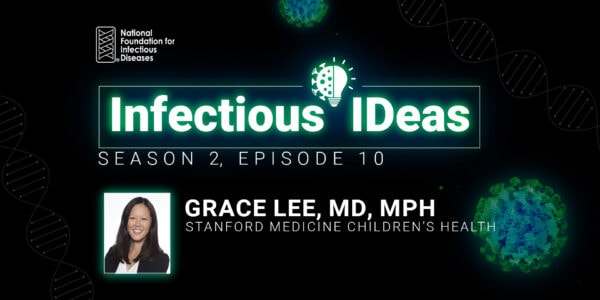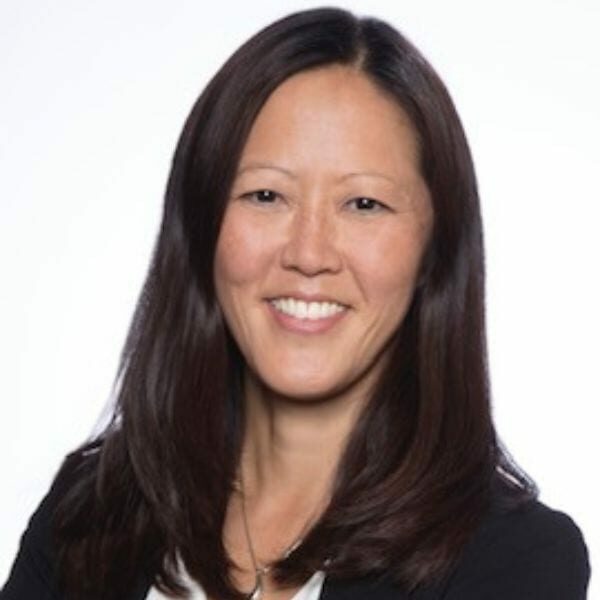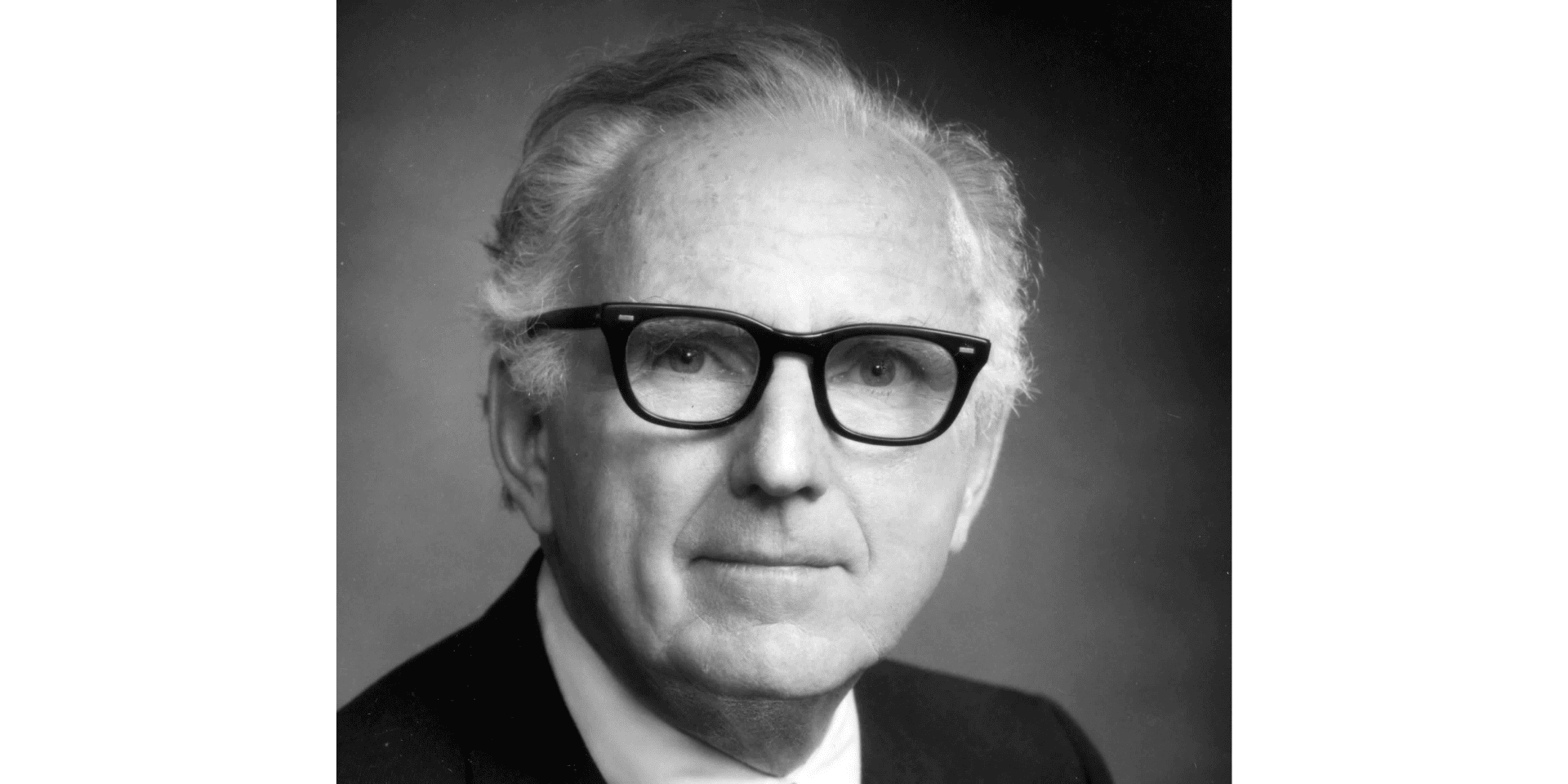The John P. Utz Leadership Award honors individuals who exemplify and support NFID leadership goals, through service to NFID and/or the field of infectious diseases.
Grace M. Lee, MD, MPH, of Stanford Medicine Children’s Health and Stanford University School of Medicine, received the 2024 John P. Utz Leadership Award in recognition of her outstanding leadership as chair of the US Advisory Committee on Immunization Practices for the Centers for Disease Control and Prevention during the COVID-19 pandemic. “Grace Lee served during the turbulent times of COVID-19, marked by meetings, which were frequent, numerous, and at times challenging,” said NFID Immediate Past-President Patricia (Patsy) A. Stinchfield, RN, MS, CPNP in nominating Lee. “She has been center-stage on difficult vaccine decisions and led conversations with an inclusive, patient, yet decisive tone. She was the perfect person for the times, and we are all indebted to her.”
Lee oversees the Center for Pediatric and Maternal Value at Stanford Children’s, which seeks to improve quality, safety, patient experience, and health equity across the organization. She has served on Institute of Medicine committees that reviewed priorities in the National Vaccine Plan and evaluated ethical and scientific issues in studying the safety of approved drugs. She has also participated on the National Academies of Sciences, Engineering, and Medicine committee on vaccine research and development for pandemic and seasonal influenza and is a member of the National Academy of Medicine. Lee continues to manage and treat young patients with infectious diseases.
Tribute Video
Acceptance Speech
An Interview with Grace Lee
What is your greatest professional accomplishment or challenge?
My service to the US Advisory Committee on Immunization Practices (ACIP) has been one of the greatest privileges and biggest challenges of my professional career. During the pandemic, I served under 2 administrations, 3 CDC directors, 2 executive secretaries for ACIP, and remotely onboarded 2 new cohorts of ACIP members. The only constant was change. We had to build and maintain a culture of trust and teamwork that enabled us to express diverse viewpoints on rapidly emerging scientific data and openly debate recommendations in public. Transparency in decision-making while communicating with a broad audience was a challenge—made possible because ACIP members and public health colleagues were committed to service above and beyond to meet the needs created by a public health emergency.
Describe a situation that has had a profound impact on you to this day
In 2012, my father passed away unexpectedly. He was an old-school pediatrician and solo practitioner who cared for 3 generations of family members in his primary care practice. Without telling us, he drove himself to the community hospital where he had worked for more than 30 years to seek care, had a procedure done, and died less than 24 hours later. The hardest part, besides knowing that there was a medical error that led to his death, was that there was no communication with our family until he was intubated in the ICU, no disclosure process, and the physicians who cared for him did not come to the bedside or share what happened in his last moments.
That was when I realized that despite all the knowledge I had, I was not able to help and advocate for my own family member. So, I began to look for ways to avoid this from happening to others. From there I progressively began to transition my career as a health services and population health researcher to healthcare leadership, so that I could use my skillset to help others.
Who or what inspired you to work in infectious diseases?
My parents have been a significant part of my professional journey in that they both have led service-oriented lives, which has shaped how I view my role in the world.
Another turning point happened by chance. During medical school at Penn, I was looking for an opportunity to work in Boston. My pediatrics sub-internship attending at Children’s Hospital of Philadelphia, Stephen Ludwig, MD, took the time to refer me to his colleague, Gary Fleisher, MD, who in turn introduced me to my first clinical research mentor, Marvin Harper, MD, with whom I published my first paper on occult pneumococcal bacteremia. This early experience ended up being a guidepost for my career in infectious disease, clinical and health services research, decision analysis, and health policy. Small acts of kindness and the willingness of others to teach me has led me to the career I have today.
Who do you most admire, and why?
I have been fortunate to have people who have been willing to guide me early in my career on my own personal and professional journey. One mentor stands out and is someone I have tried to emulate over the course of my career–Tracy Lieu, MD, MPH. In addition to being an outstanding scientific and career mentor to myself and other women, she is remarkable for her ability to truly sponsor the careers of those around her. She created opportunities for me as a fellow and young faculty member to present my research in front of ACIP and participate in key National Academy of Medicine committees related to vaccines. Even as she left Harvard, she continued to open doors for me as a friend and colleague. She has inspired me to pay it forward, and I hope that I can inspire others to do the same.
What are the greatest threats and opportunities for the profession?
Misinformation and disinformation are the greatest threats to our progress in protecting entire populations from vaccine-preventable diseases. While anti-vaccine activism and vaccine hesitancy have been present for decades, the last 5 years have been different. Anti-science groups have become organized and politicized in ways that have become almost mainstream. As scientists and public health advocates, we have an opportunity and a responsibility to engage the public more broadly. Our collective success will depend on our ability to become an organized movement that is able to communicate at scale and rebuild trust in science.
What are the greatest changes you have seen since you began your career?
When I first started in pediatric infectious diseases, I thought the only career path was to become an academic clinician and researcher. Instead, I have come to realize that our field is far more diverse. Our field thrives on intellectual curiosity, supports evidence-based decision-making, pushes us to build collaborative relationships to succeed, and importantly teaches us to lead by influence, rather than by authority. This allows for so many different pathways to success.
That said, we will continue to see challenges in growing and sustaining our workforce in infectious diseases over the next several decades. We will need to continue to bring talented young people into our field to lead and to serve.
Knowing what you know now, what, if anything, would you do differently?
While my own career path has not been linear, I have not had any regrets about the choices I have made. Each stage in my career has blessed me with new learning opportunities. That said, I wish I had learned earlier in my career that it was possible for me to play a role in addressing health inequities in my daily work. ACIP certainly provided a platform for our committee to highlight and incorporate equity into our decision-making process. That experience has since shaped how I try and lead in other areas.
What is your advice for the next generation of infectious disease professionals?
Whatever your path, resilience is critical. Take risks, try new things, and keep learning, especially at critical junctures in your career.
Is there anything else you would like to add?
My mother often said, “The moment you think you’re good, is when you no longer are.” Be humble, know that your path was paved by others, and remember your journey of learning is lifelong.
Having a voice is powerful and using it to give visibility to those who often go unheard is an opportunity.
For additional perspectives from Grace M. Lee, MD, MPH, listen to the NFID Infectious IDeas podcast, Leading through Uncertainty.



